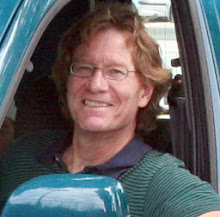So I returned, after my horrible first experience at the Phonetics Lab, for a second session, because I'd paid for it (mostly) but also because I thought maybe the second time would be more useful and not quite so discouraging.
Wrong. If anything, it was even worse.
I was greeted this time by a friendly, vivacious, middle-aged woman whom I'll call "D", who asked me for the results of my phonetics evaluation, which I had, of course, forgotten, but which also was no big deal, since I simply told her that I needed to work on every vowel sound that existed in French (not entirely true, as you'll recall I did get 4 correct). So she told me that it made sense to work on the cadence and flow of French, and in particular, to work on the way the French accent their words and sentences. Which seemed to me to be a good way to proceed.
The rule was easy enough to understand -- sentence were divided up into smaller logical parts, and the last syllable of each part is accented, except for the one at the end of the sentence, which goes down. The parsing sentences into logical parts was a breeze. The difficulty arose when I actually tried to say the sentence. Sentence one: Il vit ici à Paris, mais aussi en Italie, aux Philippines, aux îles Fidji et au Chili, which you are supposed to accent as Il vit ici à ParIS, mais aussi en ItalIE, aux PhilipPINES, aux îles FidJI et au ChiLI. The problem, of course, was everything other than accenting the last syllable of the sub-phrases. I'd get through three words, and "D" would say, writing every wrong word down, "no, no, no, "D" says (yes, she spoke of herself in the third person, something I find odd and annoying) ... 'D' says 'Paris' but Steve says 'Pèris'. D says 'Italie' but Steve says 'Etalie'. D says 'Philippines' but Steve says 'Félépines'. D says 'Fidji' but Steve says 'Figi'." And so it went, through six more painful sentences, each highlighting a different vowel sounds, resulting in a list of 25 words (I have the paper to prove it) that D said correctly but Steve said incorrectly -- D says Belge but Steve says Belche (one time) and Beldge (the next time); D says amuse but Steve says amuise then amouse; D says musique but Steve says mousique then miusique; D says moiné but Steve says moi (a small victory there, saying it wrong only one way).
To say I was discouraged would be an understatement; I felt like a little baby sitting in a high chair trying to say his first words (no, no, no, D said "daddy" but Steve said "da da"). But D kept right on being vivacious, and my attitude started to get worse, the low point being this: At one point, she was trying to get me to say some word in some particular way, and she said, "No, you have to say it like this if you want to sound chic." To which I replied, "Je ne suis pas chic. Je ne peut pas dancer non plus." (Non-Francophones click here.) I'm not sure D got the joke.
So I'm done with the Phonetics Lab. I didn't get a thing out of it, it being simply impossible to absorb (much less incorporate) so many different small differences in sounds. Plus, my regular instructors say that although I have an American accent, it's not overwhelming and that I'm perfectly understandable in French. My conversation partner Valerie says that my American accent is cute and that I shouldn't lose it. So if I say Belche, the Francophone world will just have to live with it.
Thursday, December 18, 2008
Subscribe to:
Post Comments (Atom)




No comments:
Post a Comment